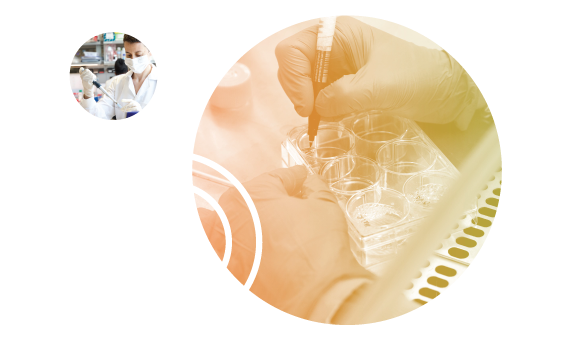THE
INTERCEPT-MDS
PROJECT

Disease interception is a novel concept referring to the treatment of a disease before it fully develops by removing altered cells. To make disease cell interception a reality, researchers need to overcome two key challenges. First, to identify a few altered disease cells among many healthy ones. Second, the development of strategies that allow the specific targeting of malignant cells without affecting healthy cells.
INTERCEPT-MDS will approach these challenges using myeloid diseases as a suitable paradigm for clonally evolving diseases and several innovative research tools, aiming at improving the diagnostics and treatment of haematological malignancies and other cancers.
RESEARCH OBJECTIVES
We have three specific research objectives:
1.To characterize changes in cellular heterogeneity in myeloid diseases and to identify early disease cells using single-cell sequencing methods.
2. To understand the epigenetic regulators determining cell-to-cell heterogeneity and to test them as potential points for interception.
3. To improve our tool-set for research and innovation by developing novel pre-clinical models for myelodysplastic syndromes and new methods for data analysis.

SCIENTIFIC EXCELLENCE AND PERSONAL DEVELOPMENT
The highly complementary composition of the INTERCEPT-MDS network will provide all the key expertise and infrastructure to support the scientific excellence of our PhD candidates.
Experts from two sectors (academia and industry) and two research environments (clinical and basic) across Europe will offer a unique multidisciplinary and multisectoral training opportunity in the novel field of disease interception.
Our ESRs will be enrolled in a PhD programme and will receive a structured training programme consisting of soft skill courses, targeted workshops, conferences, retreats, social events and networking.
In addition, our ESRs will carry out secondments in other European institutions within the network to provide the needed interactions to achieve research and training excellence, and improve their future career perspectives in academia and the private sector.
WORK PACKAGES
Our three research objectives are addressed in three dedicated research work packages (WPs) that are interconnected but independent. Four key additional transversal WPs are training, communication, management and ethics.
WP1 – Identification of disease cells (lead by Erasmus MC).
WP2 – Exploring and exploiting epigenetics for interception (lead by Vetmeduni).
WP3 – Improving models and tools for disease cell detection and interception (lead by BioBam).
WP4 – Three-level training for Careers (lead by Inserm).
WP5 – Communication (lead by IJC).
WP6 – Management and Coordination (lead by IJC).
WP7 – Ethics requirements (lead by IJC).
